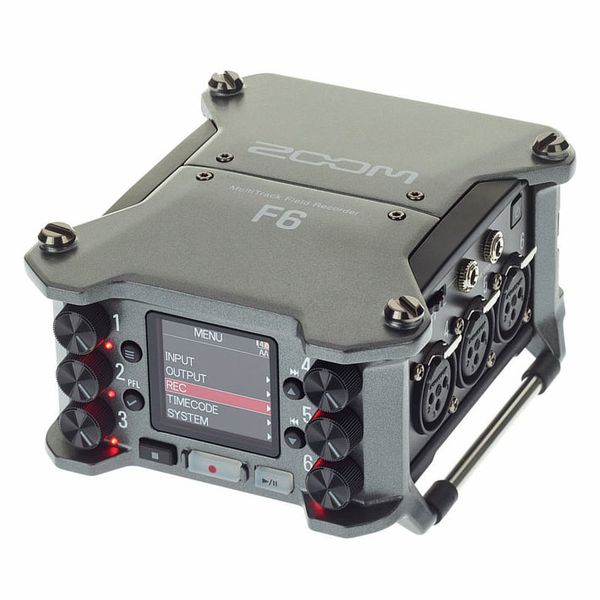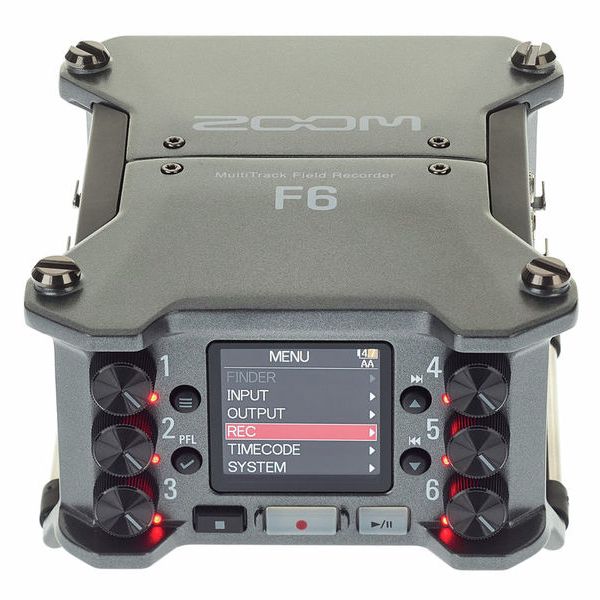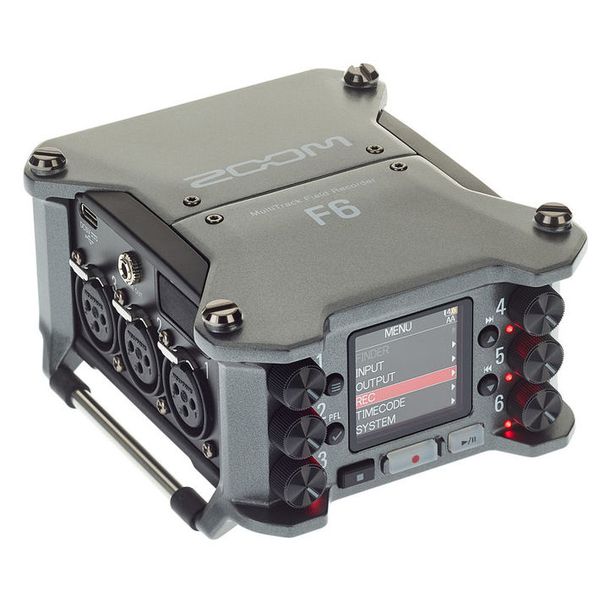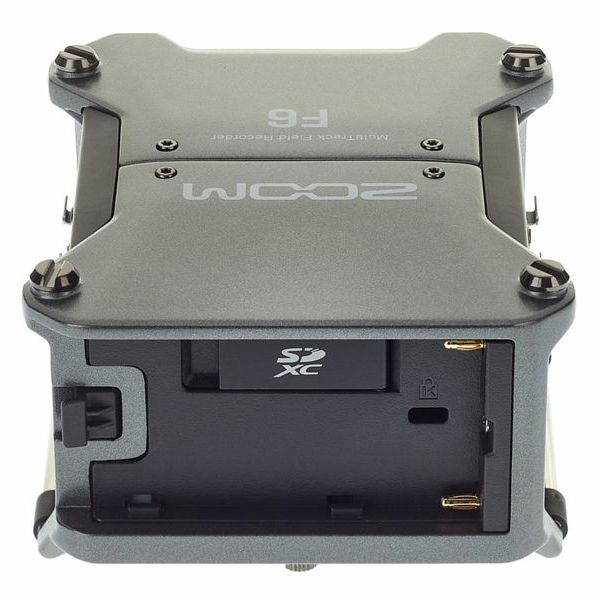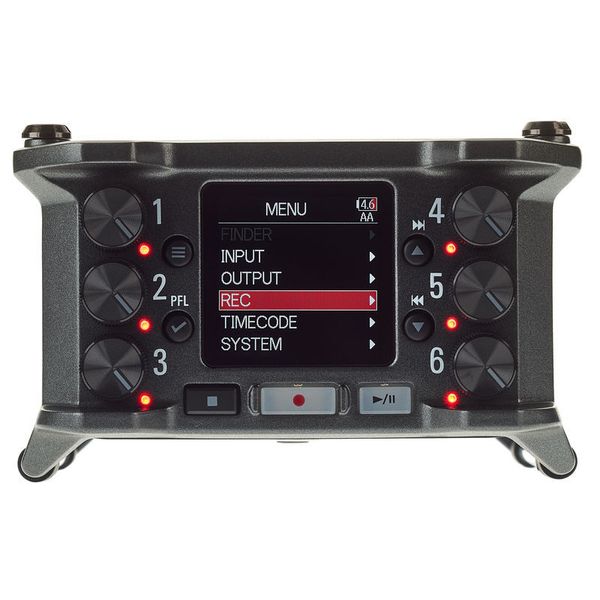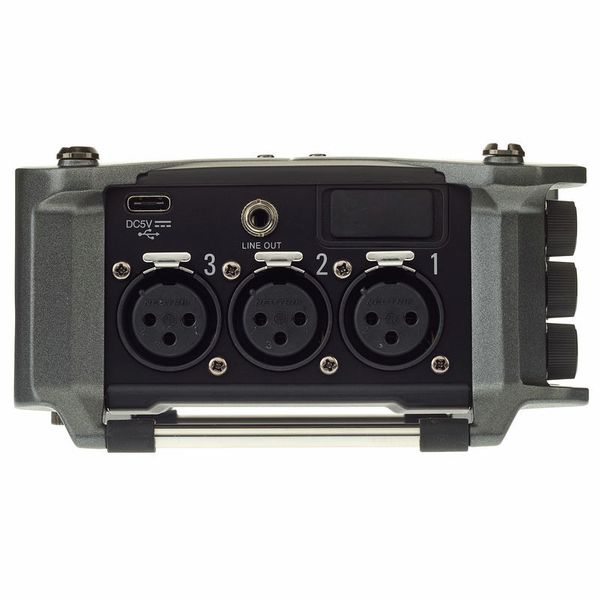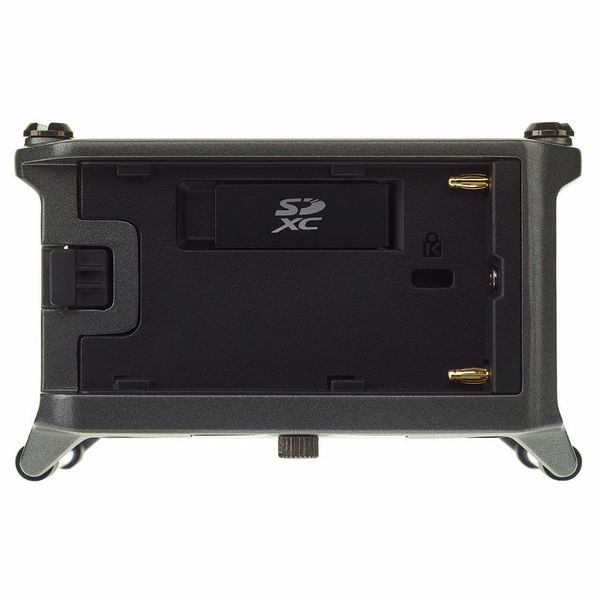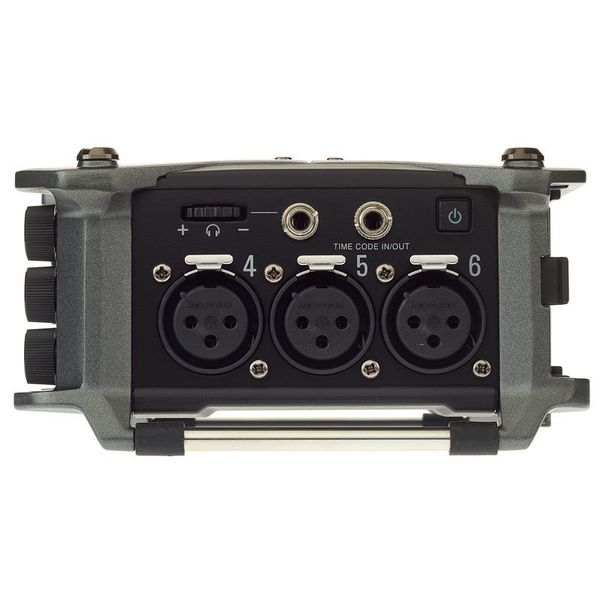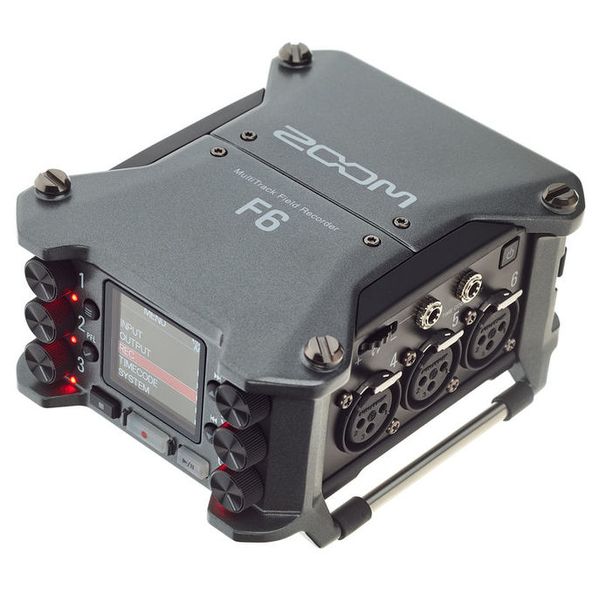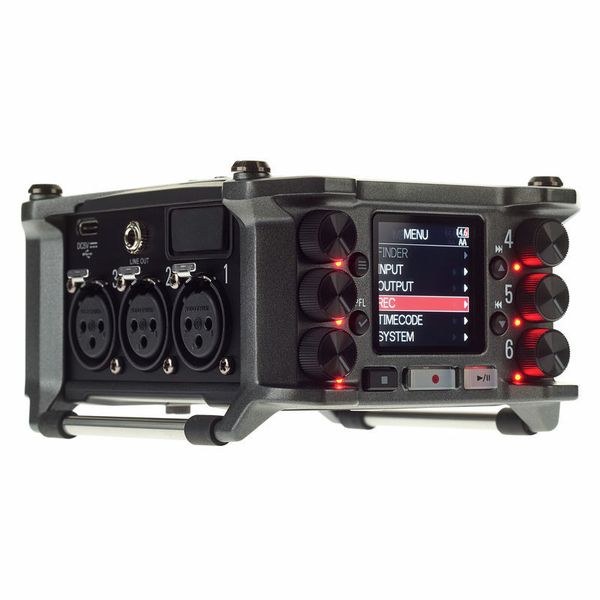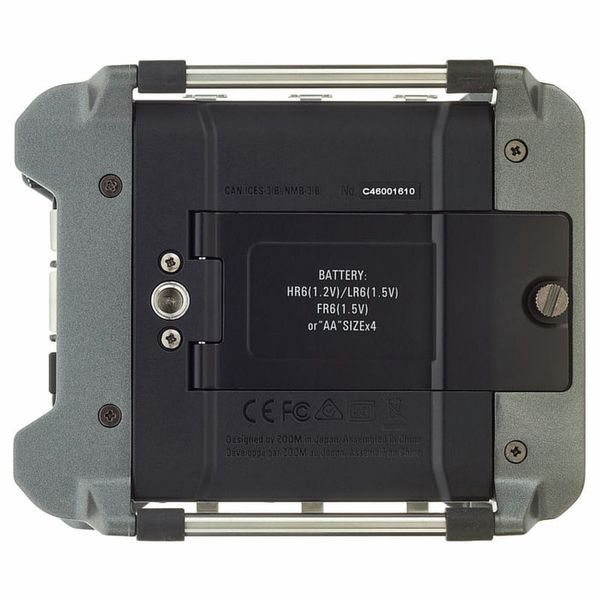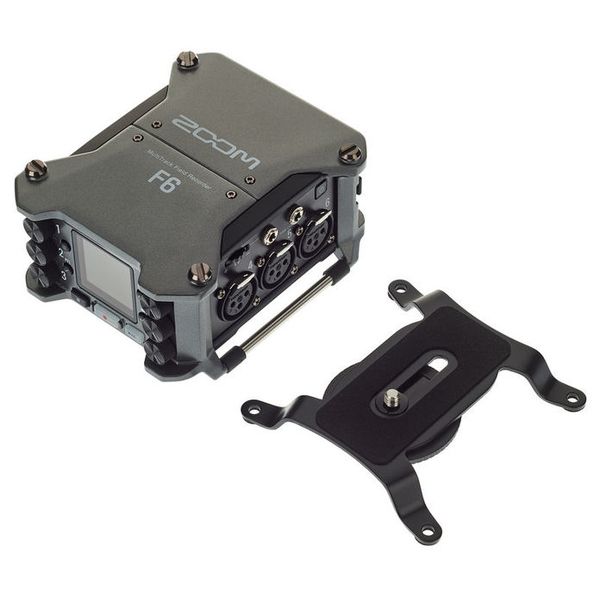I will list the good and bad aspects of the Zoom F6 but will note that overall I think this is a great device. For context, I am coming from a Zoom F4 but I have experience with most of Zoom's devices.
Good:
- Amazing amount crammed into a tiny package. In particular the six XLR inputs.
- 32-bit float
- Very quiet and transparent mic preamps. These seem to be the same as those that are in the F8n Pro and the F3. The ones in the F4 seemed to be slightly different at 192 kHz (although this might be more to do with the anti-aliasing filters).
- Battery life of 4 x AA batteries is surprisingly good. I am coming from the Zoom F4 which uses 8 AAs and have found the efficiency of the F6 much improved. As an example, I recorded 2 x Lewitt LCT540s large diaphragm mics (phantom power at 3.6 mA) at 192 kHz and 32-bit float for over 3 hours before the batteries gave out. If you reduced the sample rate you could expect to record for much longer. I was using 4 x Energiser rechargeables rated at 2300 mAh each.
- Built-in NPF/L-series battery caddy avoiding the need for external powerbanks connected via cables. It can still be powered by USB and a powerbank if you prefer though (no hirose). As the performance is so good on AAs, you might still consider that option if only recording for a few hours. If you have multiple powering options attached, the device is smart enough to swap between them automatically if one becomes exhausted.
- Can be bus powered, unlike the F8n Pro and F4.
- USB-C. The Zoom F8n Pro still uses mini USB; maybe there's a reason.
- Minijack headphone socket. While the 1/4" socket on the F4 and F8n might be regarded as professional, I would occasionally find myself in the field without the adapter.
- Rugged build. Lots of metal and the top and bottom panels extend out to protect the dials from damage and accidental movement. No sharp edges.
- Additional useful features such as trim linking, stereo linking, MS decoding and Ambisonics modes.
Bad:
- The user interface and interaction with menus and parameters is pretty horrible. This is to some extent unavoidable on account of the physical size of the device and the limited panel area. However, swapping the positions of the dials and the buttons so that the buttons were on the edges would facilitate operating using the thumbs, which would undoubtedly be an improvement.
- Navigating the menus with four buttons is slow and unintuitive. Regular use of the device is required to get used to this. A combo jog-wheel and button as in the H4n might have offered improved interaction. Perhaps the six dials could have also functioned as press switches to serve as menu shortcuts.
- In interface mode, it is not possible to use the physical dials to adjust trim levels. To adjust trim levels you have to dive through several menus and adjust each individually using the two tiny up/down buttons. This has been made slightly less of a problem now that firmware 2.0 allows operation at 32-bit float in interface mode, but having the dials as trim controls in interface mode, at least as an option, would greatly increase the versatility of this device.
- This one is quite niche, but I was trying to use the F6 as a sound file player with some music tracks I had created elsewhere, but it would only read certain files. Even after investigating formats and file naming I could not surmise its rationale. This issue has been raised by others and Zoom's response was: the Zoom F6 is not intended as a sound file player.
- No jack inputs. The connectors are XLR only, not combo XLR/jack inputs. For line level input you need to use XLR and make the change in the device's software. Admittedly, combo connectors wouldn't fit with the battery block in the middle of the device.
- SD card slot on the bottom, underneath the L-battery (if attached) so changing the card involves removing this battery. Again, this is somewhat understandable given the small size of the device, but I would happily have sacrificed the Bluetooth dongle socket to have the SD card slot on the side!
Things I can't comment on as I don't use them but that may be useful to you:
- Bluetooth operation.
- Timecode
- Automix (useful when recording conferences)
- LR mix recording
- The limiters
In summary I highly recommend this device for travelling field recordists for whom compactness and a large number of mic inputs are requirements. For film-makers and people for whom size and weight are not so critical and better ergonomics and UI are desired, you might consider the Zoom F8n Pro.


